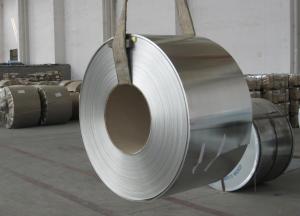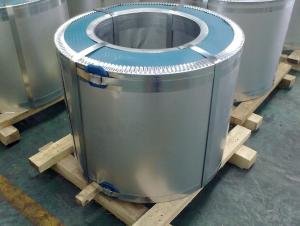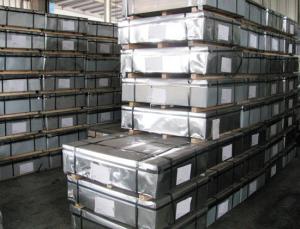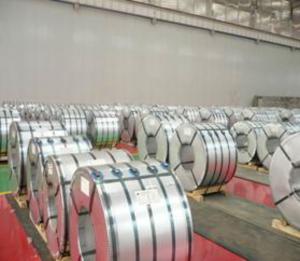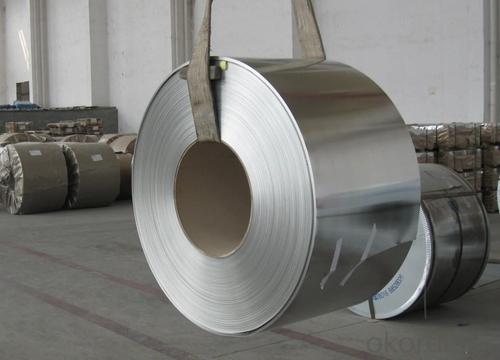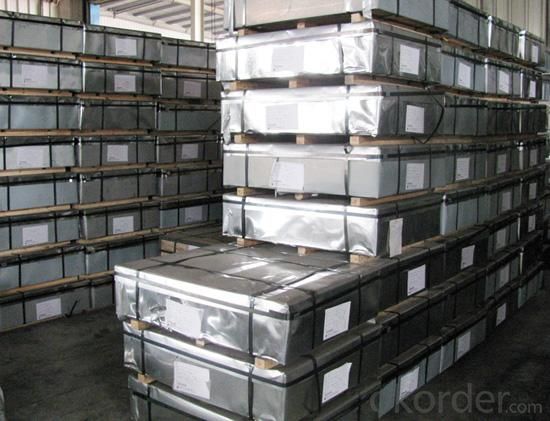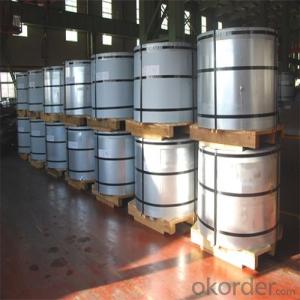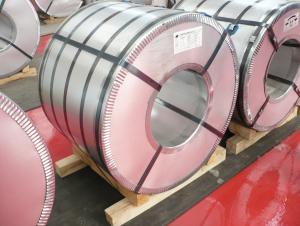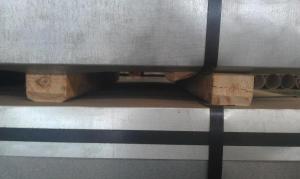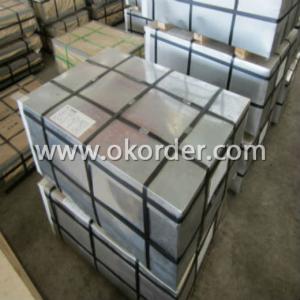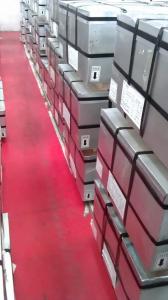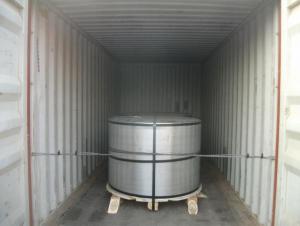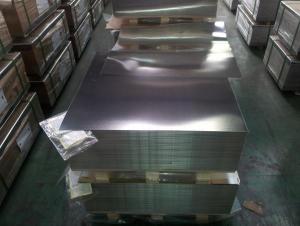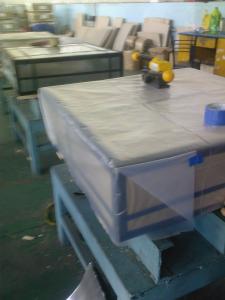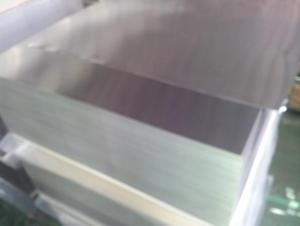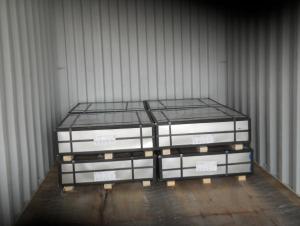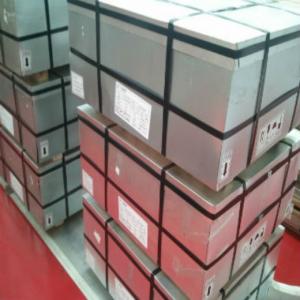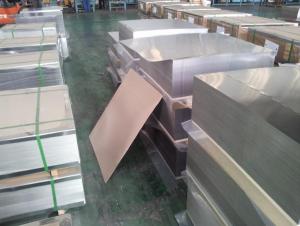Tinplate For Chemical Use-CHBB
- Loading Port:
- China Main Port
- Payment Terms:
- TT or L/C
- Min Order Qty:
- 20 Tons ~25 Tons m.t.
- Supply Capability:
- 40000 MT Per Month m.t./month
OKorder Service Pledge
OKorder Financial Service
You Might Also Like
General information of Tinplate For Chemical Use
|
Steel Type |
SPCC |
|
Temper (BA&CA) |
T1~T5, DR8 |
|
Coating |
2.8~8.4g/m2 |
|
Thickness & Tolerance |
0.15~0.5mm (Tolerance:±0.01mm) |
|
Width & Tolerance |
600~1000 mm(Tolerance: +2/-0mm) |
|
I.D |
508 MM |
|
Coil Weight |
3~10 MT |
|
Passivation |
311 |
|
Oiling |
DOS |
|
Surface Finish |
Bright ,Stone ,Silver ,Matte |
|
Min Order |
25 Tons for 1 20 feet FCL |
|
Package |
Seaworthy Export Standard Wooden Pallet |
|
Standard Available |
GB/T2520-2000, JIS G3303, ASTM A623, BS EN10202 |
|
Lead Time |
35 days after receiving buyer's original L/C or Prepayment |
|
Special specifications are available on customers' requirements. | |
Technical data of Tinplate For Chemical Use
|
Chemical Composition(%) |
Mechanical Property |
|
C:0.04~0.06 |
Yield Strength: (Mpa):280~320 |
|
Si:0.01~0.03 |
TensileStrength: (Mpa):340~390 |
|
Mn:0.18~0.22 |
Elongation:20%~30% |
|
P:0.014~0.016 |
------------- |
|
S:0.006~0.009 |
Application of Tinplate For Chemical Use
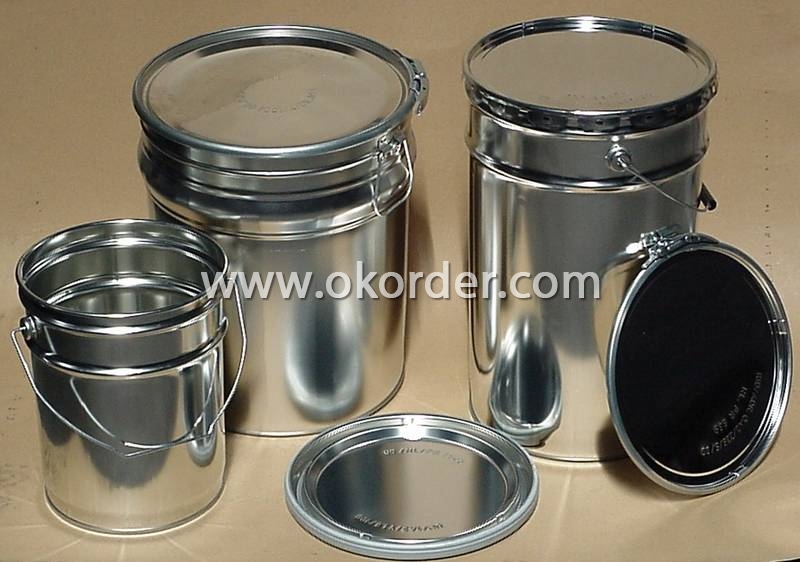
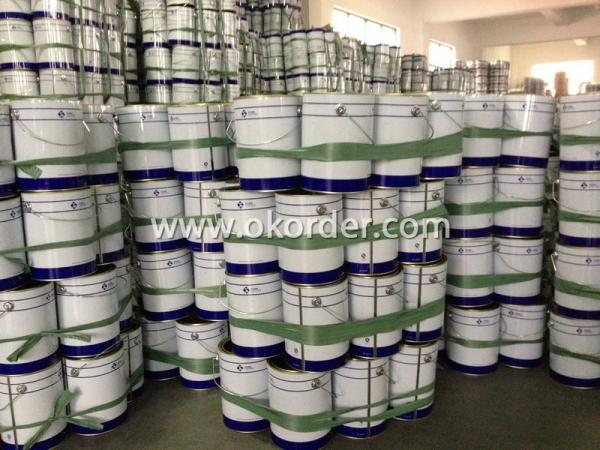
Tinplate is widely used for making all types of containers such as artistic cans, tea cans,
painting cans, chemical package cans and metal printing etc. Its applications are
not limited to containers; recently, tinplate has also been used for making
electrical machinery parts and many other products.
Equipment and Facility
Tin Coating Line
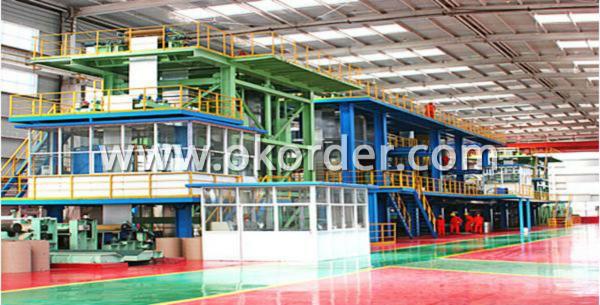
Cold Rolling Mill Batch Annealing Furnaces
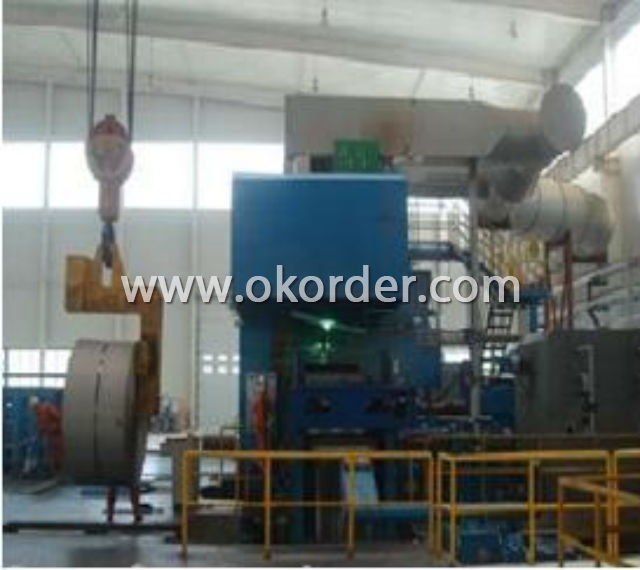
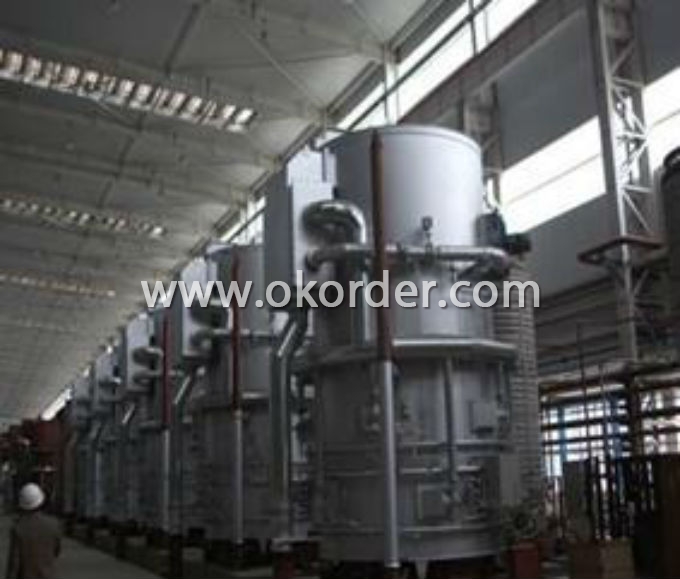
Cutting Line Stock Area
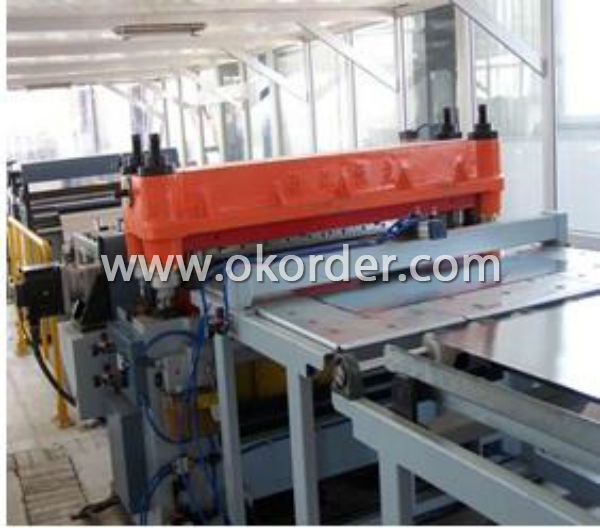
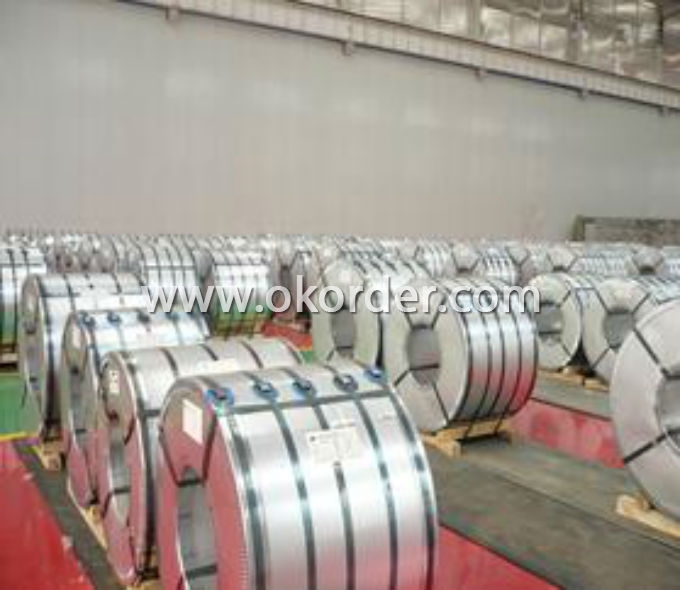
Quantity Control System
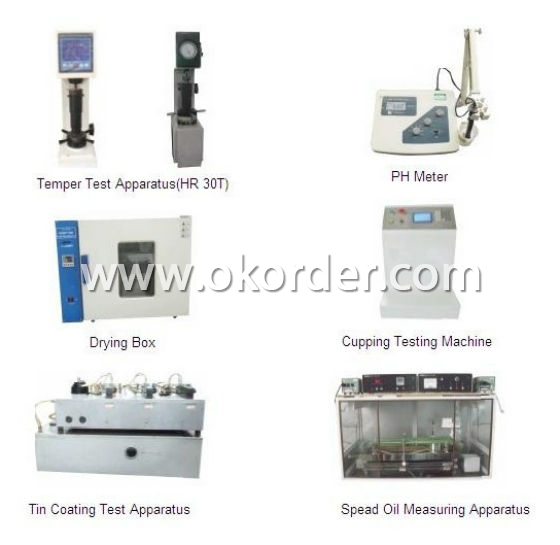
- Q: Can tinplate be used for packaging perishable goods?
- Yes, tinplate can be used for packaging perishable goods. Tinplate is a material that is resistant to corrosion and can provide a protective barrier against moisture, light, and oxygen, which are factors that can cause spoilage in perishable goods. Additionally, tinplate containers can be sealed tightly to maintain the freshness and quality of the perishable products.
- Q: What are the common sealing options for tinplate containers?
- The common sealing options for tinplate containers include twist-off caps, easy-open ends, peelable lids, and screw-on lids.
- Q: What are the common packaging formats for tinplate?
- The common packaging formats for tinplate include cans, containers, and tins.
- Q: Tin can bake oven electrical electromagnetic induction principle
- First of all, you know that mechanical energy such as sound can not be transmitted in a vacuum, but it can propagate electromagnetic waves. Heating iron cans, iron cans emit electromagnetic waves, infrared, and the like. The bottle is left vacant or left vacant, and it will be affected by energy, fever, deformation and so on.
- Q: Can tinplate be used for toys and games?
- Yes, tinplate can be used for toys and games. Tinplate is a lightweight and durable material that can be easily shaped and decorated. It is commonly used to make toy cars, trains, tin soldiers, and various other playthings.
- Q: How does tinplate contribute to the durability of gardening tools?
- Tinplate contributes to the durability of gardening tools by providing a protective coating that prevents rust and corrosion. This helps to extend the lifespan of the tools, making them more resistant to wear and tear caused by exposure to moisture and harsh outdoor conditions.
- Q: How does tinplate contribute to the overall convenience of packaging?
- Tinplate contributes to the overall convenience of packaging due to its durability, versatility, and ability to preserve the quality and freshness of products. It provides a protective barrier against moisture, light, and oxygen, which helps extend the shelf life of food and beverages. Additionally, tinplate is lightweight, stackable, and easy to handle, making it suitable for transportation and storage. Its smooth surface allows for easy printing, enabling clear labeling and branding. Overall, tinplate packaging enhances convenience by ensuring the integrity and convenience of various products.
- Q: What are the advantages of using tinplate for signage?
- There are several advantages of using tinplate for signage. Firstly, tinplate is highly durable and resistant to corrosion, ensuring that the signage can withstand various weather conditions and maintain its quality over time. Additionally, tinplate is lightweight, making it easier to install and transport. It also offers excellent printability, allowing for vibrant and long-lasting graphics on the signage. Moreover, tinplate is a sustainable material as it is 100% recyclable, making it an environmentally friendly choice. Overall, the advantages of using tinplate for signage include durability, corrosion resistance, lightweight nature, excellent printability, and sustainability.
- Q: What are the main factors influencing the growth of the tinplate market?
- The main factors influencing the growth of the tinplate market include the increasing demand for packaged food and beverages, the rising preference for eco-friendly and sustainable packaging materials, technological advancements in the production process, and the expanding applications of tinplate in various industries such as electronics and automotive. Additionally, the growing population, urbanization, and changing consumer lifestyles are also driving the demand for tinplate packaging solutions, contributing to the market's growth.
- Q: How is tinplate affected by different types of food products?
- Tinplate can be affected by different types of food products due to the potential reaction between the metal and certain acidic or alkaline foods. This can result in a metallic taste or discoloration in the food. To prevent such interactions, tinplate is often coated with a layer of enamel or lacquer to provide a protective barrier between the metal and the food.
1. Manufacturer Overview
| Location | Hebei,China |
| Year Established | 2009 |
| Annual Output Value | US$2.5 Million - US$5 Million |
| Main Markets | North America South America Eastern Europe Southeast Asia Africa Mid East Eastern Asia Western Europe Central America Northern Europe Southern Europe Domestic Market |
| Company Certifications | ISO9001:2000 |
2. Manufacturer Certificates
| a) Certification Name | |
| Range | |
| Reference | |
| Validity Period |
3. Manufacturer Capability
| a) Trade Capacity | |
| Nearest Port | TIANJIN |
| Export Percentage | 11% - 20% |
| No.of Employees in Trade Department | 6-10 People |
| Language Spoken: | English, Chinese |
| b) Factory Information | |
| Factory Size: | Above 100,000 square meters |
| No. of Production Lines | Above 10 |
| Contract Manufacturing | |
| Product Price Range | Average |
Send your message to us
Tinplate For Chemical Use-CHBB
- Loading Port:
- China Main Port
- Payment Terms:
- TT or L/C
- Min Order Qty:
- 20 Tons ~25 Tons m.t.
- Supply Capability:
- 40000 MT Per Month m.t./month
OKorder Service Pledge
OKorder Financial Service
Similar products
Hot products
Hot Searches
Related keywords
